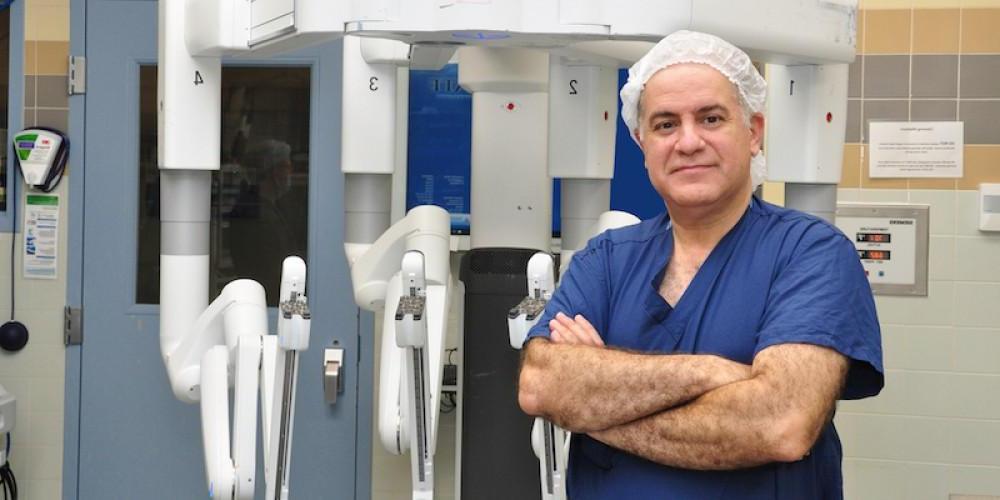Upstate living kidney donor transplants at all-time high
Upstate Medical University had one of the highest rates of live donor kidney transplants in New York state in 2023, and outcomes for these patients ranked among the best in the state and country, say officials.
Today, Upstate's Kidney Transplant Center relocates from the hospital to a suite in 550 Harrison. Officials and a kidney donor recipient will officially open the new space this afternoon.
Upstate did 94 kidney transplants in 2023 and 32 of them involved living donors—the highest number of living donors since 1988. At 35 percent of total donations, Upstate ranked only behind Weill Cornell Medical Center and Columbia University Irving Medical Center in New York for live donors.
Reza F. Saidi, MD, FICS, FACS, director of the Kidney Transplant Program, said that Upstate initiated several campaigns after he arrived four years ago to target living donors, since outcomes for patients are far better with a living donor over a deceased one.
“A live donor is the best option for patients who need a kidney transplant,” he said.
Currently there are 7,000 people in New York waiting for a kidney, including about 400 at Upstate. Saidi said the average wait time is five to six years, and during that time, many people die or get so sick they are no longer eligible for a transplant.
Finding a living donor significantly reduces that wait time. With a live donor, surgery can be scheduled much sooner. The time between removing the kidney from the healthy donor and transplanting it into the patient can be as little as minutes, whereas it will be a minimum of hours with a deceased donor. And the donors are screened to make sure they are healthy.
All of those factors add up to better outcomes—better kidney function and longer lives—for the recipients.
Saidi said that Upstate’s failure rate for patients who received kidneys from live donors was 30 percent lower than the national average.
“We have a very experienced team here that also leads to good outcomes,” he said.
But, he added, it isn’t always easy for a patient to ask a friend or relative for a kidney. Patient education and strategies are part of Upstate’s campaign.
“We talk to them about how to approach loved ones, or how to put their story on social media or in the newspaper, he said. “A lot of people come forward when they hear the story.”
There’s also a lot of education done to attract potential live donors. The donors will experience a minimally invasive surgery and after a recovery of three to four weeks, return to normal life. These donors are followed by Upstate for several years following donation and incur no expenses for the screenings, surgery and follow ups, which are paid for by the recipient’s insurance.
“People can live a healthy life with one kidney,” Saidi said. “They are not at an increase of developing other diseases, like high blood pressure, diabetes or even kidney disease compared to the normal population.”
While most patients receive a kidney from a relative or friend, a rising number of altruistic donors are providing kidneys. In fact, 10 of Upstate’s transplants last year involved altruistic donors—people who have no connection to the patient other than wanting to help.
“They just want to donate and be a good citizen,” Saidi said. “They want to help someone.”
Saidi said that kidney disease is on the rise. Currently one in 7 people have kidney disease. Diabetes, which is also on the rise in the US, is the leading cause of kidney disease, which is typically asymptomatic until it is too late.
“Unfortunately, more and more people in this country are getting kidney disease,” he said. “Some progressed to the point where there is no cure other than a transplant. People need to be aware of kidney disease and have their kidney function checked with their primary care doctor.”
To learn more about becoming a living donor, visit http://www.kidneyregistry.org/
To be screened to be a living donor at Upstate visit: http://upstate.donorscreen.org/register/now.
Caption: Reza F. Saidi, MD, FICS, FACS, director of the Kidney Transplant Program.

